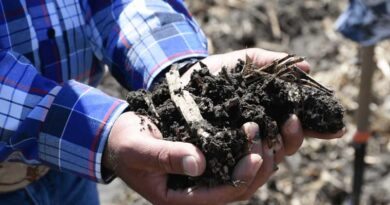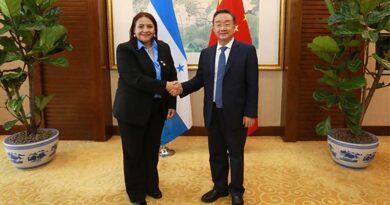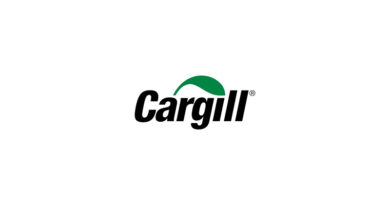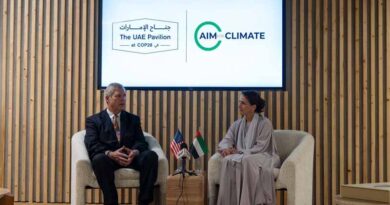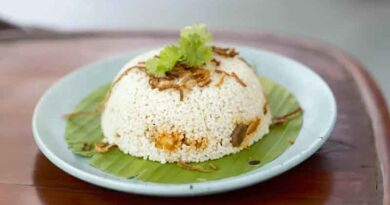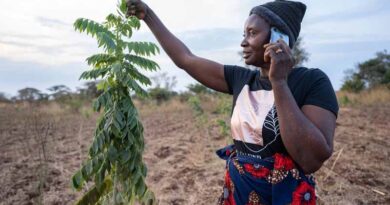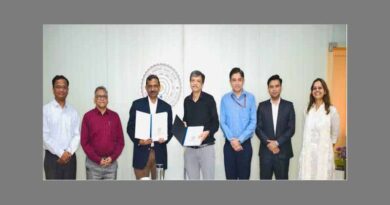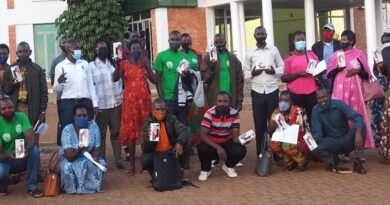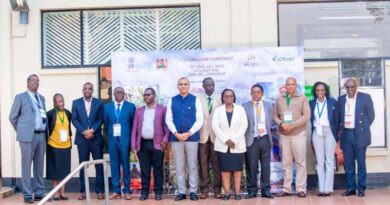Innovation Hubs in Western Honduras, Cornerstones for Agricultural Sustainability
03 July 2024, Honduras: We are paving the way for significant agricultural change in the community of Lentago, Belén Gualcho, Ocotepeque. By means of the AgriLAC Resiliente initiative, we have taken firm steps towards more sustainable and resilient agrifood systems in Honduras through continuation efforts at the agricultural innovation hub.
“Fertilization is one of the main issues identified through plot diagnosis and the participation of several producers from three areas (Lentago, El Aguacatillo and La Mohaga),” says Jesús Erardo Díaz Gómez. He is a technician participating in the project and provided Elmer Valeriano with technical support during the installation of the hub on his plot, where sustainable practices are currently being implemented and compared with conventional local practices.
Traditionally, fertilization occurs 15 to 22 days after planting. “The innovation hub seeks to improve this practice by evaluating fertilization during planting in order to ensure adequate nutrient availability maize plants,” says Erardo, who is part of the InnovaHub West Honduras technical team, which coordinates local organization and stakeholder AgriLAC Resiliente efforts, promoting innovation and sustainability in the Honduran agricultural sector.
InnovaHub Occidente is not just impacting fertilization methods. Erardo states that the seed selection processes for future crops also needs to be reexamined. Currently, seeds are selected once they “tapizcan” (harvest) the maize, taking it out of the field. However, this has its problems. “With the innovation hub, we aim to start this process in the field, carefully selecting the healthiest plants most suited to the needs of local producers,” he explains.
Hubs like the one in Lentago help disseminate knowledge about sustainable practices. The CIMMYT and ODECO technical team has played a pivotal role resolving questions and orienting farmers about sustainable maize management.
Of course, the success of efforts like this one requires commitment and active participation from farmers like Elmer Valeriano. Elmer is a proactive farmer open to new techniques. He is an inspirational model showing how collaboration between technicians and farmers drive the shift towards more sustainable and efficient practices, like the installation of a rain gauge that promises to yield vital data for informed decision making in the hub.
Though seemingly simple, the rain gauge provides a way to better understand crop irrigation requirements and adjust agricultural practices accordingly. “The results will allow us to compare the amount of water received with actual crop requirements, providing a reliable foundation for making decisions,” says Erardo, noting Elmer’s commitment to collecting and recording the data from the rain gauge.
The work by InnovaHub Occidente de Honduras is not isolated. It is a part of a broader initiative: AgriLAC Resiliente. This CGIAR driven effort aims to transform agrifood systems in Latin America and the Caribbean by increasing resilience and competitiveness. The InnovaHubs in Honduras, in collaboration with organizations such as the Alliance of Bioversity International and CIAT and CIMMYT, are paving the way towards a more prosperous and sustainable future for agriculture in the region.
Ultimately, success for these initiatives will depend on continued collaboration among all stakeholders: farmers, technicians, organizations, and local communities. More resilient agrifood systems that not only feed present generations, but also protect and restore land for future generations, are possible as long as we continue to focus on innovation and sustainability.
(For Latest Agriculture News & Updates, follow Krishak Jagat on Google News)
(+80 Million Farming Audience Visits Krishak Jagat’s Hindi Website – Click Here for Website)



